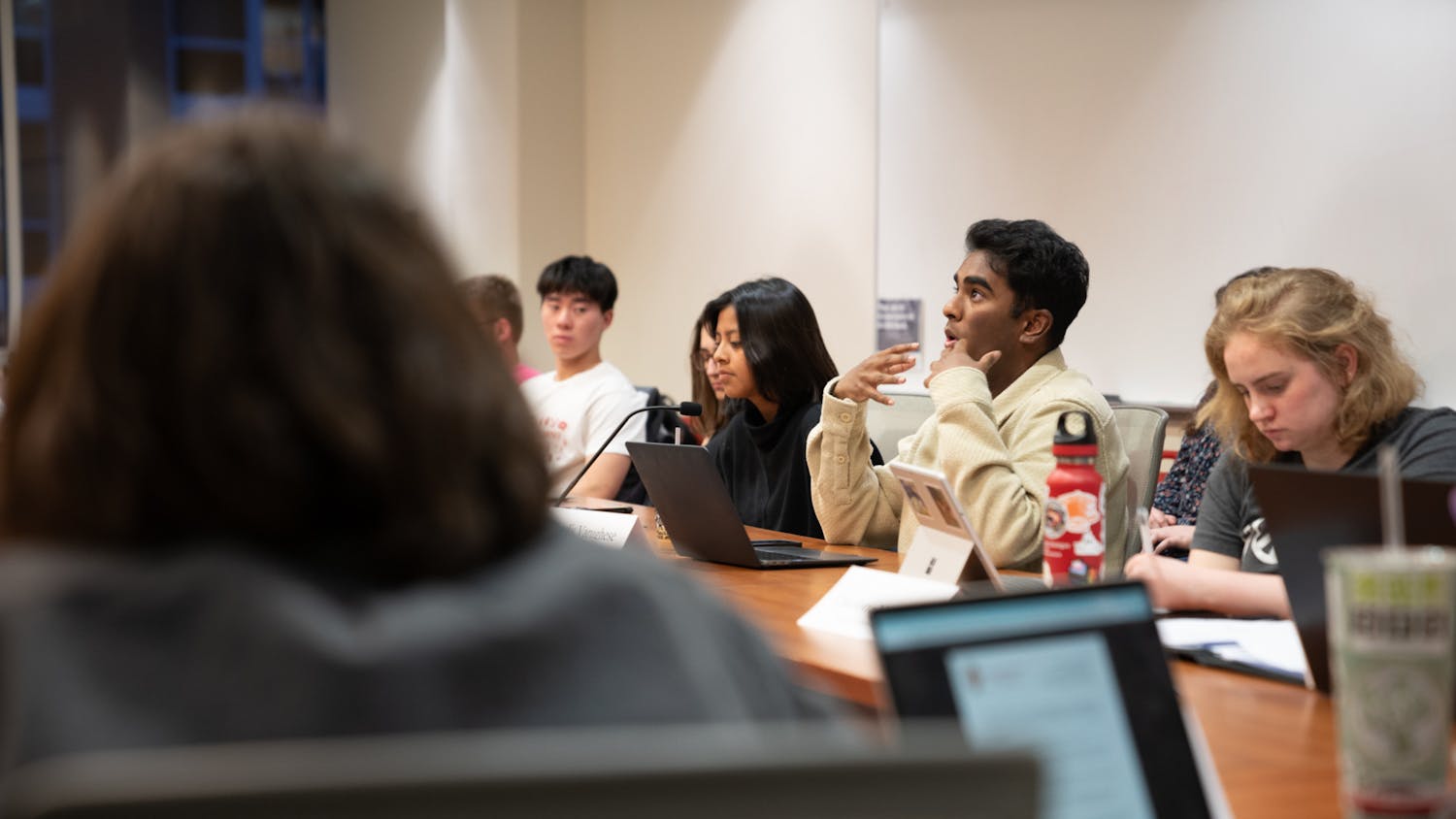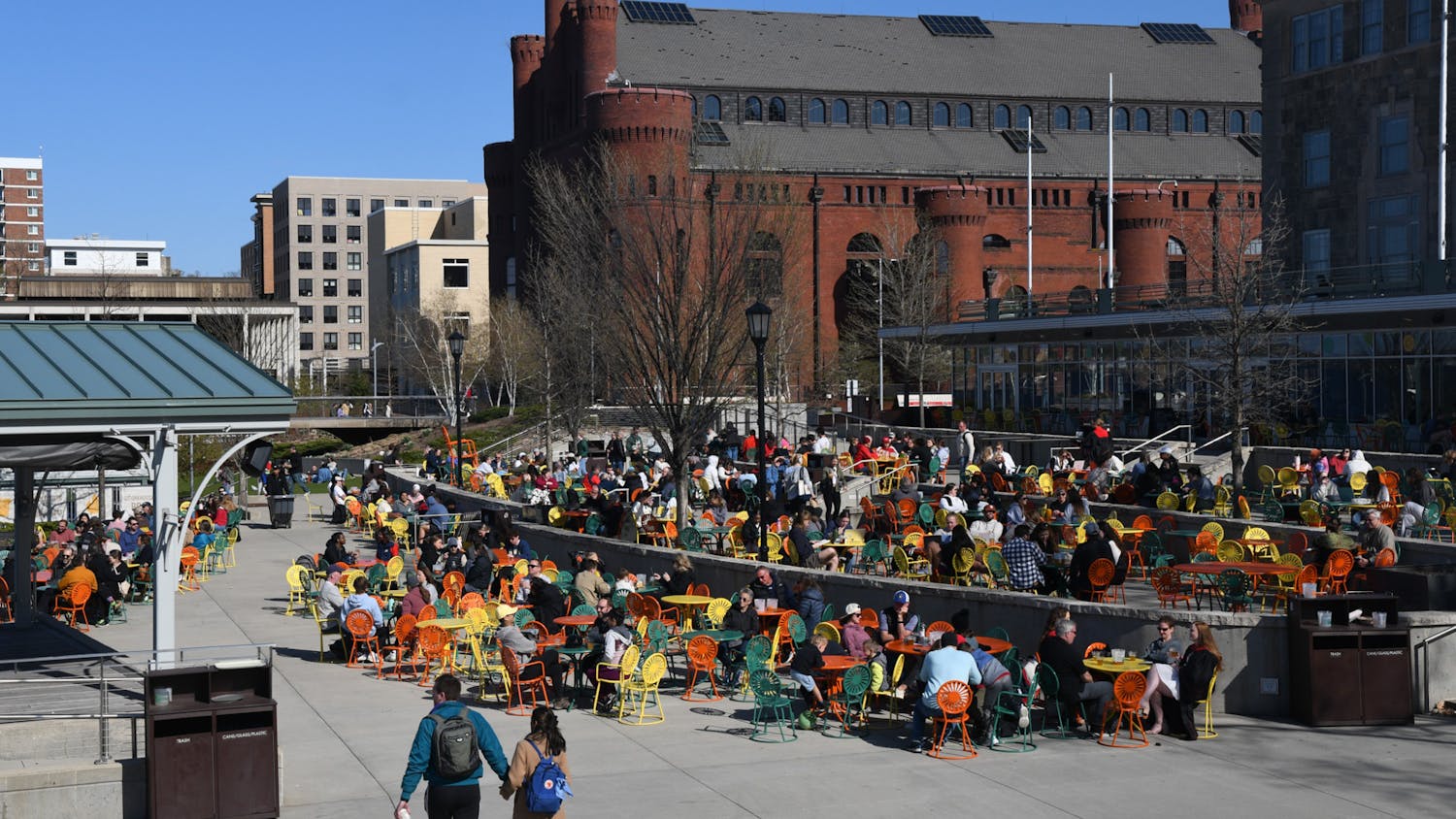During The Daily Cardinal's recent interview with Chancellor Biddy Martin, there was one answer that stood out above the others in both its frankness and its unexpectedness: ""No.""
That was Martin's answer to the question of whether the University of Wisconsin can continue its low tuition model while still providing adequate financial aid for underprivileged students. She continued, saying ""I think the university can avoid becoming a high tuition institution, and we should avoid that ... but I think the university needs to be competitive with its peers, so we need to get to the median of our Big Ten peers.""
Martin's actions have clearly coincided with that answer, as shown with the beginning of the Madison Initiative for Undergraduates last year. Nonetheless, it was surprising to hear Martin say flat out that one of UW's holiest of values, low tuition, is likely on its way out the door.
Many who are working multiple jobs or racking up copious debt to pay for tuition may question whether that low tuition model even exists now. But as any admissions representative will eagerly tell you, UW's tuition has consistently ranked near the bottom of the Big Ten and the rest of its peer group. Even with the tuition raises from the MIU, only the University of Iowa has a cheaper in-state tuition rate than UW. And this has been consistent with the central philosophy of the University of Wisconsin system, where low tuition is offered in place of financial aid to make education affordable.
However, that model is becoming less and less practical with every year. Tuition rising faster than inflation has come to be expected at all universities, which is increasingly making any sort of university education unattainable for those from low-income families. Being the cheapest university in your peer group may be a great thing to trumpet in an admissions brochure, but when a student is forced to dive into an ocean of debt to attend any school in that peer group, that nifty little factoid suddenly seems rather trivial.
Because being relatively cheap does not matter when all alternatives are out of reach, financial aid is the natural solution to make sure Wisconsin's best and brightest all have the opportunity to receive an education.
Other universities have realized this. Harvard, with its mammoth endowment, has made tuition free to any student whose family earns less than $60,000 a year. But this isn't just a feat for obscenely wealthy Ivy League schools – peer institutions right in Wisconsin's backyard have enacted similar programs. The University of Minnesota offers its Promise Scholarship to all students receiving a Federal Pell Grant, which guarantees that the university will cover all costs and fees not already accounted for by state and federal gifts.
But along with making Wisconsin available to the state's most talented, UW needs to make a stronger effort to keep them in the state, something the MIU does not address. In this respect, UW would be wise to follow the Ohio State University. The Buckeyes award their merit-based Land Grant Scholarship to students from each of Ohio's 88 counties, which is a great step toward keeping bright minds from every corner of Ohio in state.
Thankfully Martin is aware of this problem as well, as she addressed in her interview.
""The truth is most merit aid is in the colleges ... and that's great once students declare a major. But we need more merit aid and more need based aid to recruit the best students as incoming freshmen,"" said Martin.
Unfortunately, Martin did not address a plan to increase merit-based aid to freshmen in her interview, and that is something that needs to change immediately. Especially considering the solution is fairly simple: incorporate merit-based aid into an updated version of the MIU, to take effect once the current initiative finishes its fourth year. Even with the current financial aid increases from the MIU, neither need nor merit- based aid are where they should be. And with state funding unlikely to rise and alumni donations an unreliable form of income at best, there is only one financial stream to turn to: Tuition.
As backward as it may seem, tuition at UW needs to become more expensive for the university to become more affordable. Whining about tuition may be a favorite pastime of students, but, at the risk of sounding like an out-of-touch parent, know that it is for your own good.
Todd Stevens is a senior majoring in history and psychology. Please send all feedback to opinion@dailycardinal.com






